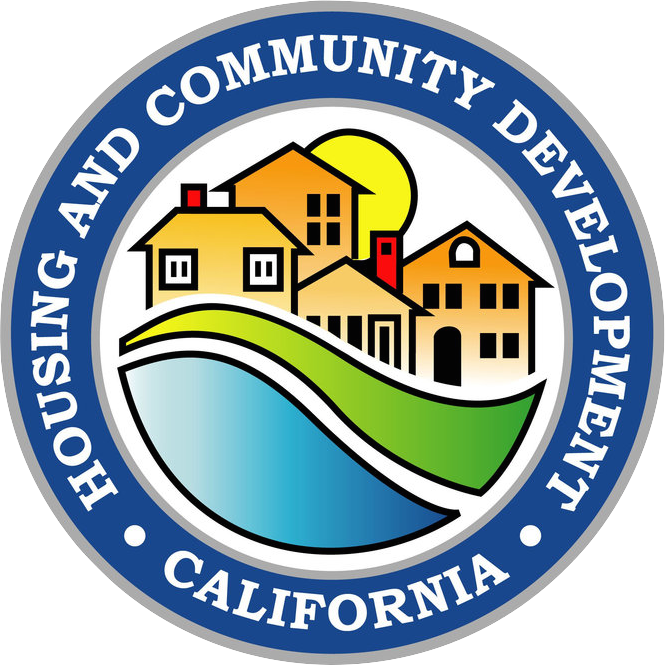Native American Tribal Affairs
With 109 federally recognized tribes and 65 unrecognized tribes, California is proud to be the home of more Native American residents than any other state.
Tribal Affairs at the California Department of Housing and Community Development (HCD) seeks to meaningfully partner with California tribes and Tribally Designated Housing Entitles (TDHEs) to improve access to state housing and infrastructure funding programs. This is part of the State's ongoing effort to rebuild its relationship with tribes, and to be considerate and inclusive of the needs and input of tribal communities throughout California.
For decades, tribal communities have been excluded from benefiting from state-administered housing programs. Over time, this led to disparities in access to safe, affordable housing among tribal communities in California. To improve communication and consideration of the needs of Tribes, Governor Edmund “Jerry” Brown issued Executive Order (EO) B-10-11 in 2011. This order established the Governor's Office of the Tribal Advisor and requires all state agencies and departments to encourage early consideration, communication, and consultation with Tribes when developing legislation, guidelines, regulations, rules, or policies on matters that affect Tribes and their communities.
In 2019, Governor Gavin Newsom issued EO N-15-19 (PDF) , which reaffirmed the previous executive order and added a formal apology to California Native Americans for atrocities committed by the State against Native Americans during early statehood. This marked a major step forward in California's commitment to acknowledge past wrongdoings and build relationships with Tribes. The work to document the historical relationship between California Native Americans and the State as well as to recommend paths forward continues through the California Truth & Healing Council .
To address the housing needs of Native American Tribes, the California Legislature passed Assembly Bill (AB) 1010 in 2019. This requires the Department of Housing and Community Development (HCD) to meaningfully address tribal access and participation in HCD funding programs.
AB 1010 expands the definitions of “local public entities” and “non-profits” used by our funding programs to include tribal entities, clarifying tribal access to vital housing resources. It also grants HCD's Director or Designee the ability to address barriers to access by modifying or waiving certain HCD program requirements. This an important authority because Tribal Nations have varying government structures and requirements that HCD standard practices may not initially accommodate.
The law establishes the G. David Singleton California Indian Assistance Program (CIAP) to provide comprehensive technical assistance (TA) to Tribes and Tribally Designated Housing Entities (TDHE's) throughout the funding process. The goal of this technical assistance program is to provide the necessary tools and resources to support Tribes' in successfully applying for State housing programs.
The historic passage of AB 1010 gives HCD the tools to remove barriers for tribes to participate in our funding programs through the California Indian Assistance Program (CIAP) (PDF). CIAP's mission is to expand Tribal awareness and knowledge of HCD funding programs and provide comprehensive, individualized technical assistance to tribal governments, tribally designated housing authorities, non-profits, and other tribal partners in the funding of affordable housing in California tribal communities.
To support meaningful participation in our funding programs, CIAP has established the following objectives:
- Engage in consistent dialogue with tribal entities to inform HCD's understanding of housing and infrastructure needs and to shape TA services.
- Ensure tribal participation in all HCD funding programs by updating program requirements to minimize and, wherever possible, eliminate obstacles to tribal applicants.
- Ensure tribal access to funds, including through the creation of specific set-aside funds for tribal applicants.
- Inform funding programs, Notices of Funding Availability (NOFAs), technical assistance, and program design with tribal input and recommendations.
- In partnership with tribal entities, support analysis and accurate documentation of statewide tribal housing needs to inform tribal and HCD housing strategies.
- Collaborate with Tribes, federal partners, sponsors, regional organizations, and other necessary stakeholders to increase Tribes'’' awareness of funding programs offered and/or administered by HCD and assist them in understanding program requirements.
- Regularly update Tribes and stakeholders/partners on the status and progress of HCD tribal affairs through a Quarterly Tribal Working Group meeting.
Tribal Affairs Email Contact:
CIAP@hcd.ca.gov
Amy Lopez, Tribal Affairs, Fair Housing Manager I
Amy.Lopez@hcd.ca.gov
Mary Lindeblad-Fry, Tribal Liaison
Mary.Lindeblad-Fry@hcd.ca.gov
Douglas Truong, Tribal Affairs, Fair Housing Manager II
Douglas.Truong@hcd.ca.gov
Zachary Ferguson, Housing Policy Specialist I
zachary.ferguson@hcd.ca.gov

